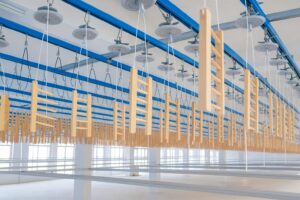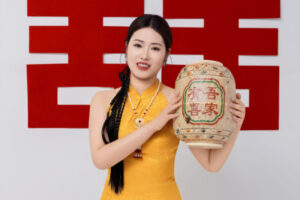Is the Montessori Play Kit Market Growing?
You see Montessori-style toys everywhere, from social media to major retail stores. You wonder if this is just a passing fad or a significant market shift.
Yes, the Montessori play kit market is growing rapidly. This growth is driven by modern parents seeking screen-free, educational, and sustainable toy options that support their child’s natural development.

As someone who has been manufacturing wooden toys for years, I can tell you this trend is very real. It’s not just a fleeting interest. The conversations I have with senior buyers, like my client Sophia from Germany, have completely changed. Five years ago, the focus was mostly on cost and cute designs. Today, the first questions are about educational value, sustainability certifications, and the safety of our materials. Parents are more informed than ever, and they are actively looking for toys that do more than just entertain. They want tools that build skills, and this fundamental shift in consumer demand is fueling the entire industry’s growth.
What trends are driving the rise of Montessori-inspired subscription boxes?
You are constantly seeing ads for Montessori subscription boxes. You wonder why this specific delivery model has become so popular with modern parents.
Subscription boxes are rising because they offer incredible convenience and expert curation. Busy parents trust that their child will receive the right educational toy at the perfect developmental stage.

The success of the subscription model is all about solving a modern parent’s biggest problems: lack of time and fear of making the wrong choice. In our factory, we produce toys for several brands that use this model. What I’ve learned from them is that parents are willing to pay a premium for peace of mind. They don’t have time to research what a 14-month-old needs versus a 16-month-old. A subscription service does that work for them.
One of the fascinating trends I’m seeing now, based on my industry insights, is the start of technology integration. Some companies are exploring AI-driven personalization. This means the kits could be adjusted based on a child’s specific progress, which the parents might track in an app. This creates a hybrid model that combines the essential hands-on, tactile experience of a wooden toy with the customization power of digital tools. It’s a way to make these expertly curated boxes even more tailored to each individual child.
Are eco-conscious parents influencing Montessori toy design?
You try to avoid plastic and want safe, natural products for your family. You wonder if other parents feel the same and how it’s affecting the toy industry.
Yes, eco-conscious parents are one of the biggest forces shaping the industry. Their demand for sustainable, non-toxic, and natural materials is pushing toy design toward eco-friendly wood and organic finishes.

This is the most significant trend I’ve seen in my career. Parents are acutely aware of the materials their children are interacting with, especially what goes into their mouths. Our business has grown because we specialize in solid wood and verifiably non-toxic, water-based paints. My industry insights confirm this is not a niche concern anymore; it’s mainstream. Parents are demanding transparency and are willing to invest in quality they can trust.
This has pushed our entire production process to become more sustainable. We prioritize sourcing FSC-certified wood, which guarantees it comes from responsibly managed forests. The rise of demand for natural fibers like organic cotton and wool for softer toys is another part of this trend. For us as manufacturers, it means we have to maintain very strict supply chains and certifications. But it’s good for business because it aligns with what today’s parents value most: their child’s health and the health of the planet.
How do retailers and educators market Montessori products effectively?
You have a great product, but the market is getting crowded. You need to connect with parents in a meaningful way that shows the true value of your toys.
Effective marketing focuses on the developmental story, not just the product. It uses visual storytelling to show a child building focus, solving a problem, or mastering a new skill independently.

The worst way to market a Montessori toy is to simply list its features. Successful brands don’t sell a "wooden shape sorter." They sell "a tool to build your child’s problem-solving skills and fine motor control." The marketing must be educational. Retailers and educators do this best by showing the toy in action. This could be through short videos on social media, testimonials from child development experts, or blog posts that explain the specific skill being developed. The message is always centered on the benefit to the child. It’s about demonstrating how this simple object peacefully engages a child, giving them a sense of accomplishment and giving the parent a moment of calm. This positive, benefit-driven storytelling builds trust and communicates value far more effectively than any discount or sales pitch ever could. It connects with a parent’s deep desire to help their child thrive.
Can smaller brands compete with big Montessori kit companies?
You feel passionate about creating high-quality educational toys. But you see huge subscription companies with massive marketing budgets and feel discouraged about your chances to succeed.
Absolutely. Smaller brands can compete very effectively by focusing on a specific niche, offering superior craftsmanship, building a strong community, and telling a personal, authentic brand story.
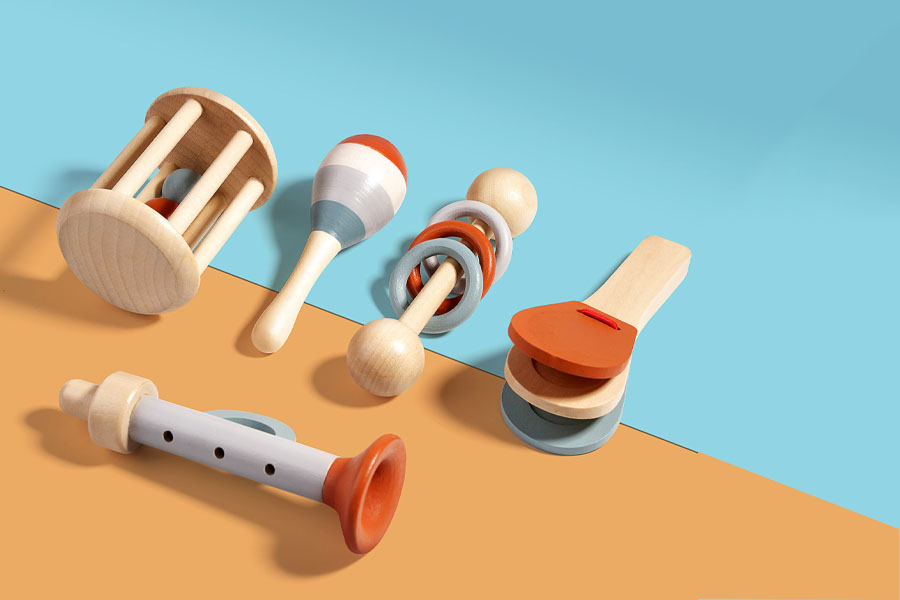
The big companies compete on scale and convenience, but small brands can win on connection and trust. I love working with smaller, independent brands because they are often founded by passionate parents or educators who have a unique vision. Their strength lies in specialization. While a big company offers a general kit, a small brand might create the absolute best materials for learning early math concepts, or focus exclusively on practical life skills.
Their marketing is also different. Instead of big ad campaigns, they build a loyal following on social media by sharing their journey and expertise. They can offer a level of customer service and personalization that big companies can’t match. By telling their authentic story, they build a brand that parents feel personally connected to. In a market where trust and authenticity are so important, being small and personal is a powerful advantage, not a weakness.
What opportunities exist for wholesalers and toy makers?
You are a manufacturer or wholesaler watching this market explode. You want to understand where the real, sustainable opportunities are for business growth in this sector.
Huge opportunities exist for toy makers in three key areas: specializing in certified eco-materials, innovating in sensory and fine motor skill toys, and providing reliable private-label manufacturing for emerging brands.
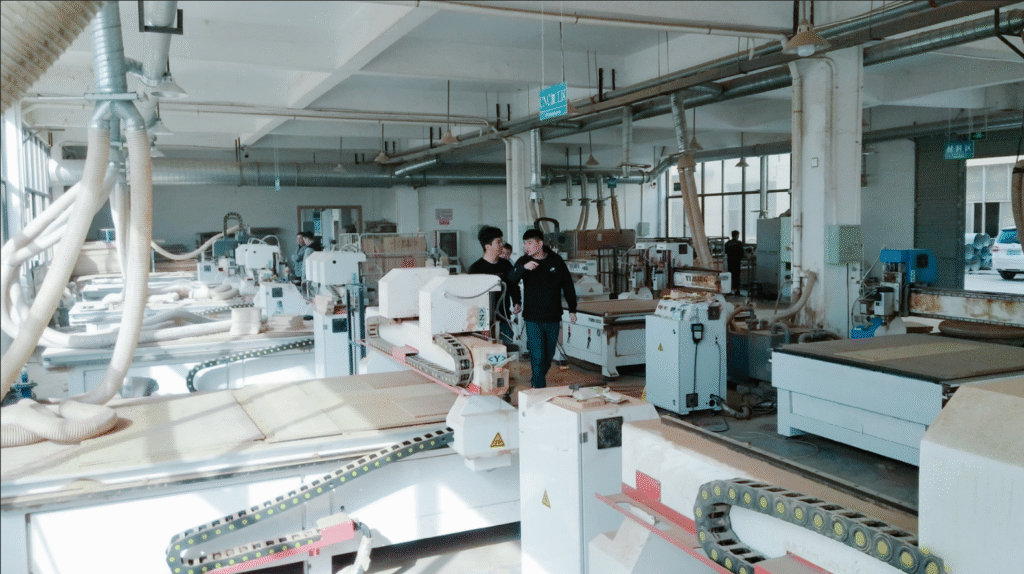
This question is at the heart of my business strategy. From my perspective inside the factory, the opportunities are clear. First, as mentioned in my industry insights, the demand for high-quality, sustainable materials is outpacing supply. Manufacturers who can guarantee a trustworthy supply chain for things like certified beech wood or non-toxic finishes have a massive advantage.
Second, there is room for innovation, particularly in toys that focus on sensory integration and fine motor skills. This has always been a core tenet of Montessori, but parents are more aware of it now. We are developing new items with varied textures, weights, and mechanisms to meet this demand.
Finally, the rise of countless new brands creates a huge need for reliable private-label manufacturing. These small brands have great ideas but lack production capabilities. A manufacturer like me can become their essential partner, handling the complexities of production and safety certification so they can focus on design and marketing.
How can brands highlight sustainability and child-safety certifications?
You have invested heavily in getting certifications like EN71, ASTM, and FSC. But you are not sure if parents understand what these mean or how to best showcase them.
Brands must make these certifications visible and understandable. Display the official logos on packaging and websites, and use simple storytelling to explain that these symbols guarantee safety and sustainability.
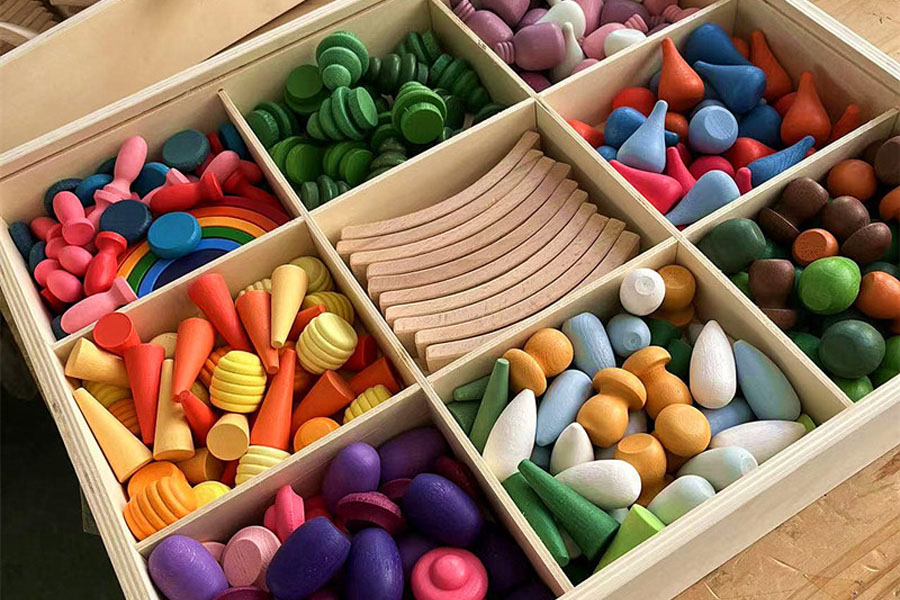
You cannot be subtle about this. These certifications are your proof of quality and a powerful reason for a parent to choose your product over a competitor’s. The first step is visual. The logos for EN71 (Europe), ASTM (USA), and FSC (Forest Stewardship Council) should be clearly printed on your product packaging, your website’s product pages, and in your marketing materials.
But just showing the logo isn’t enough. You have to translate what it means. Use simple language. For example: "You see this EN71 logo? It means every part of this toy has passed Europe’s strictest safety tests, so you know it’s safe for your baby." Or, for sustainability: "We use FSC-certified wood, which means it comes from forests that are managed responsibly to protect them for future generations." This storytelling turns a technical certification into an emotional benefit: safety for my child and care for our planet.
Conclusion
The Montessori play kit market is growing because it meets the deep needs of modern parents. This trend provides huge opportunities for brands focused on quality, safety, and authentic educational value.

